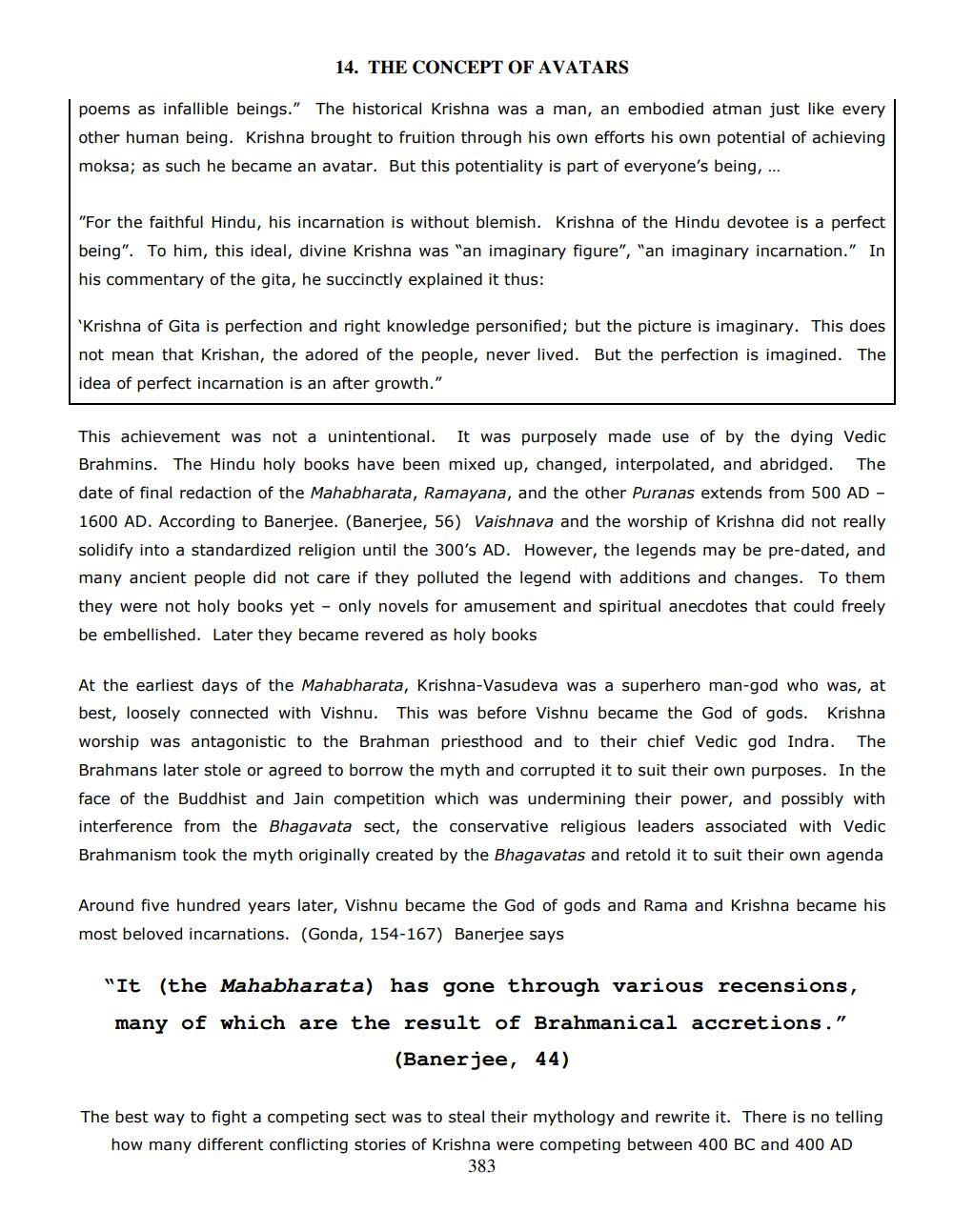________________
14. THE CONCEPT OF AVATARS
poems as infallible beings." The historical Krishna was a man, an embodied atman just like every other human being. Krishna brought to fruition through his own efforts his own potential of achieving moksa; as such he became an avatar. But this potentiality is part of everyone's being, ...
"For the faithful Hindu, his incarnation is without blemish. Krishna of the Hindu devotee is a perfect being". To him, this ideal, divine Krishna was "an imaginary figure", "an imaginary incarnation." In his commentary of the gita, he succinctly explained it thus:
'Krishna of Gita is perfection and right knowledge personified; but the picture is imaginary. This does not mean that Krishan, the adored of the people, never lived. But the perfection is imagined. The idea of perfect incarnation is an after growth."
This achievement was not a unintentional. It was purposely made use of by the dying Vedic Brahmins. The Hindu holy books have been mixed up, changed, interpolated, and abridged. The date of final redaction of the Mahabharata, Ramayana, and the other Puranas extends from 500 AD - 1600 AD. According to Banerjee. (Banerjee, 56) Vaishnava and the worship of Krishna did not really solidify into a standardized religion until the 300's AD. However, the legends may be pre-dated, and many ancient people did not care if they polluted the legend with additions and changes. To them they were not holy books yet - only novels for amusement and spiritual anecdotes that could freely be embellished. Later they became revered as holy books
At the earliest days of the Mahabharata, Krishna-Vasudeva was a superhero man-god who was, at best, loosely connected with Vishnu. This was before Vishnu became the God of gods. Krishna worship was antagonistic to the Brahman priesthood and to their chief Vedic god Indra. The Brahmans later stole or agreed to borrow the myth and corrupted it to suit their own purposes. In the face of the Buddhist and Jain competition which was undermining their power, and possibly with interference from the Bhagavata sect, the conservative religious leaders associated with Vedic Brahmanism took the myth originally created by the Bhagavatas and retold it to suit their own agenda
Around five hundred years later, Vishnu became the God of gods and Rama and Krishna became his most beloved incarnations. (Gonda, 154-167) Banerjee says
"It (the Mahabharata) has gone through various recensions, many of which are the result of Brahmanical accretions."
(Banerjee, 44)
The best way to fight a competing sect was to steal their mythology and rewrite it. There is no telling how many different conflicting stories of Krishna were competing between 400 BC and 400 AD
383




